Hogtied
by Holly Bargo
Genre: Contemporary MC Romance
Cowgirl meets biker ... what could go wrong?
When a biker shoots her sister's prize steer, champion roper Melanie goes after him. Unfortunately, she
doesn't think it through, and that hot temper puts her squarely in Hammer's sights. Melanie's ire only
increases when Hammer defuses the dangerous situation by claiming her as his property. If the former
Marine and now sergeant-at-arms of the Black Ice Revolution MC thinks she's his for the taking, he's
sadly mistaken. She wants nothing to do with him, but he's not about to let this sexy, feisty woman go.
This romance contains some explicit scenes and a guaranteed HEA. May not be suitable for young
readers.
Holly Bargo never outgrew a love of fairy tales, legends, and myths. Or horses. However, one foot must
remain firmly planted in the real world where Holly makes her living as a freelance writer and editor. She
and her husband have two grown children and live on a southwest Ohio hobby farm with a menagerie
indoor and outdoor animals.
Holly enjoys hearing from readers and other authors and may be contacted via the Hen House
Publishing website: www.henhousepublishing.com.
When she's not working on other people's documents or reading, Holly finds time to transfer the voices in
her head to paper ... er ... computer. If she doesn't, there's a definite possibility her mind will
explode.
And for those who might wonder from where the pseudonym of Holly Bargo came, it's quite simple really.
Horses. Namely an elegant and temperamental Appaloosa mare who has long since crossed the
Rainbow Bridge and is fondly remembered for guarding toddler children and crushing a brand-new
pager.
GUEST POST
Who’s in control?
By
Holly Bargo
One wit once commented, “No plot surives contact with the
characters.” I wish I could remember who said that, because every
“pantser” knows the inalienable truth of those words. It’s one
reason why we’re pantsers.
In the ongoing tug-of-war between pantsers and plotters, the “rope”
is the issue of control. Plotters exercise firm control over their
stories. They know what’s going to happen, who’s going to do it,
how it happens, and when it will occur. Then the characters get
involved and, suddenly, who does what and how and when alters,
because the planned action doesn’t fit the character’s
personality.
Pantsers like me typically begin with an idea, maybe even just a
character. We plop that character into a situation and let her run or
ignite the idea and let it burn. We have a general conclusion in
mind—in romance, that’s the “Happily Ever After”—but we
don’t necessarily have a plan on how our characters are going to
get there. Such unpredictability is responsible for Vladislav’s
brother popping into the story in Cassia
and pretty much everything that happens in The
Falcon of Imenotash.
Even when I set out with a plan in mind, the characters seize control
of the story, often from the get-go. In The
Mighty Finn, Finn wasn’t supposed to be the
strong co-protagonist he insisted on being. In Triple
Burn, Crow exerted his personality with such
surprising strength that the other two heroes in the story had to
rein him in constantly. That’s how Rowan,
Daughter
of the Twins Moons, The
Barbary Lion, and Russian
Lullaby became the first books in their respective
series: other characters demanded their own stories. And got them.
A good portion of my work consists of freelance writing which, in
many cases, includes ghostwriting stories for clients. One of my
favorite project types is adapting screenplays to novels. The
screenplay (or script) serves as a strong plot guideline and source
of dialogue. Even so, the characters take on distinct personalities
inside my imagination and they speak beyond the dialogue in the
source material and they act in ways not indicated in the source
material. Probably to a greater extent than experienced by the script
writer, those characters live in my mind. It’s an intimate
relationship.
Characters exist in my mind as real personalities. Often, they’re
more real to me than actual living persons. I think that’s because
they exist so intimately within my mind. Regardless, such strong
characters inform me as to what they want, usually to the effect that
they guide the story rather than me directing them. Or, at least,
that’s how it seems.
Fiction writing then becomes imbued with a sort of metaphysical or
supernatural aspect. Am I hearing the voices of angels and demons?
Ghosts and spirits? Or do I simply have a silly habit of
overindulging my imagination?
I won’t answer those questions because they’re irrelevant.
Neither those questions nor those answers mean squat. However, the
effect of following the characters on the roller coaster ride that is
fiction writing for a pantser is that what engages, delights, and
surprises me should also engage, delight, and surprise the reader. If
I, the author, didn’t see that coming, then how can you,
the reader? Enjoy the plot twists, because I certainly do.
Plot twists notwithstanding and no matter how far-fetched the story,
I can and do ground my characters with realistic elements. Grounding
in realism is essential for suspending the reader’s disbelief. If
the reader doesn’t trust me with the small details, she certainly
won’t trust me to lead her on flights of fancy. Whether that’s
knowing dogs shouldn’t eat grape or chocolate chip cookies or that
some method of force is required to propel a bullet from the chamber
down the gun’s barrel, my characters must be confined, restrained,
or otherwise bound by certain existing realities. In Triple Burn,
the heroes go into battle. One dies. That’s real. In Hogtied,
a weekend of unprotected sex results in a pregnancy. That’s real.
In The
Eagle at Dawn, the heroine experiences
excruciating monthly cramps like I used to endure. That’s really
real. (By the way, menopause is a blessing! Except for the hot
flashes.)
Allowing the characters to take the reins (reins, not reigns:
we’re appropriating equestrian terminology here) and guide the
story works for me. They know the destination and they determine how
we get there. I’m more or less along for the ride, just like the
reader. That mean’s there’s nothing formulaic about my stories,
even if I have to make sure that each story incorporates some of the
mandatory tropes of the genre. The release of control, I believe,
leads to greater creativity in storytelling and much better character
development.
What’s not to like?
Signed Copy of Hogtied
Follow the tour HERE for special content and a giveaway!
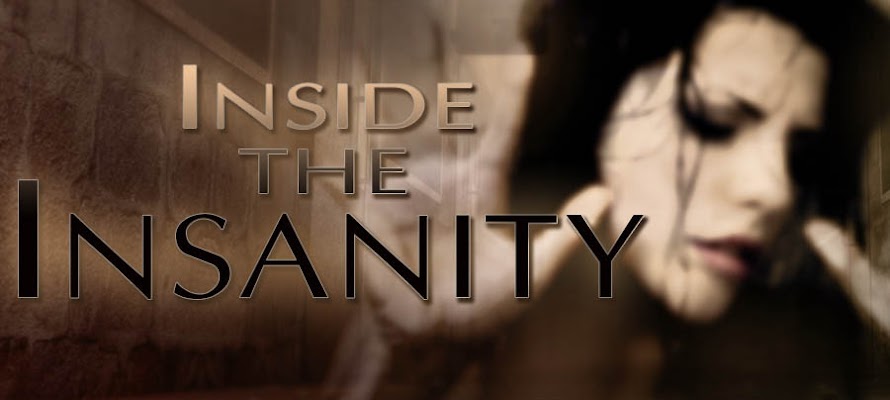
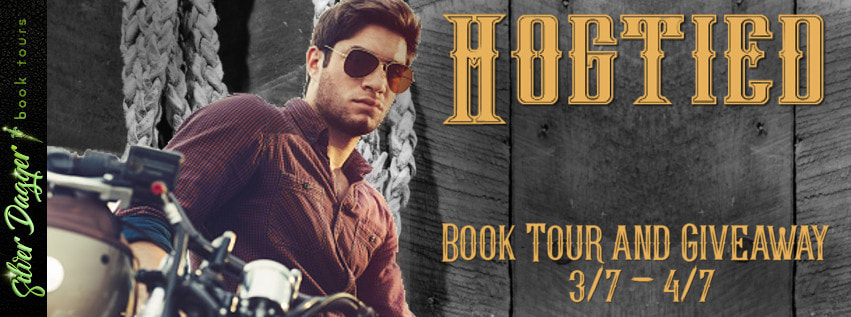
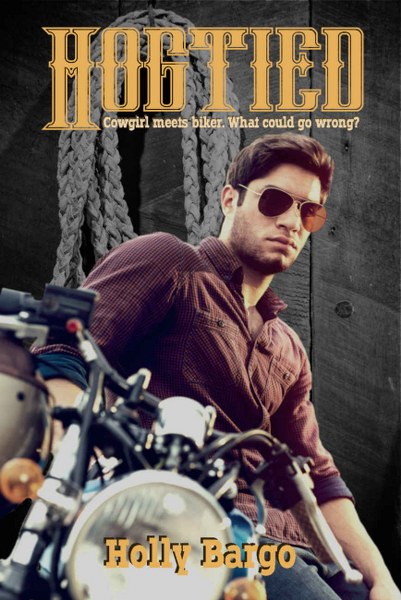


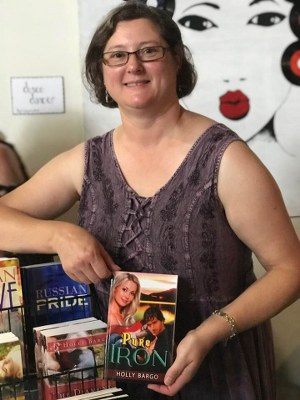

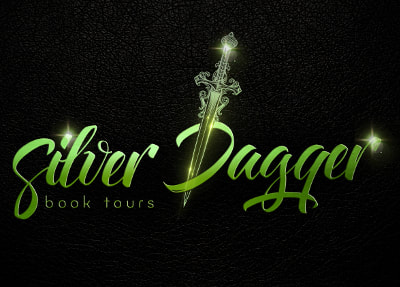
No comments:
Post a Comment